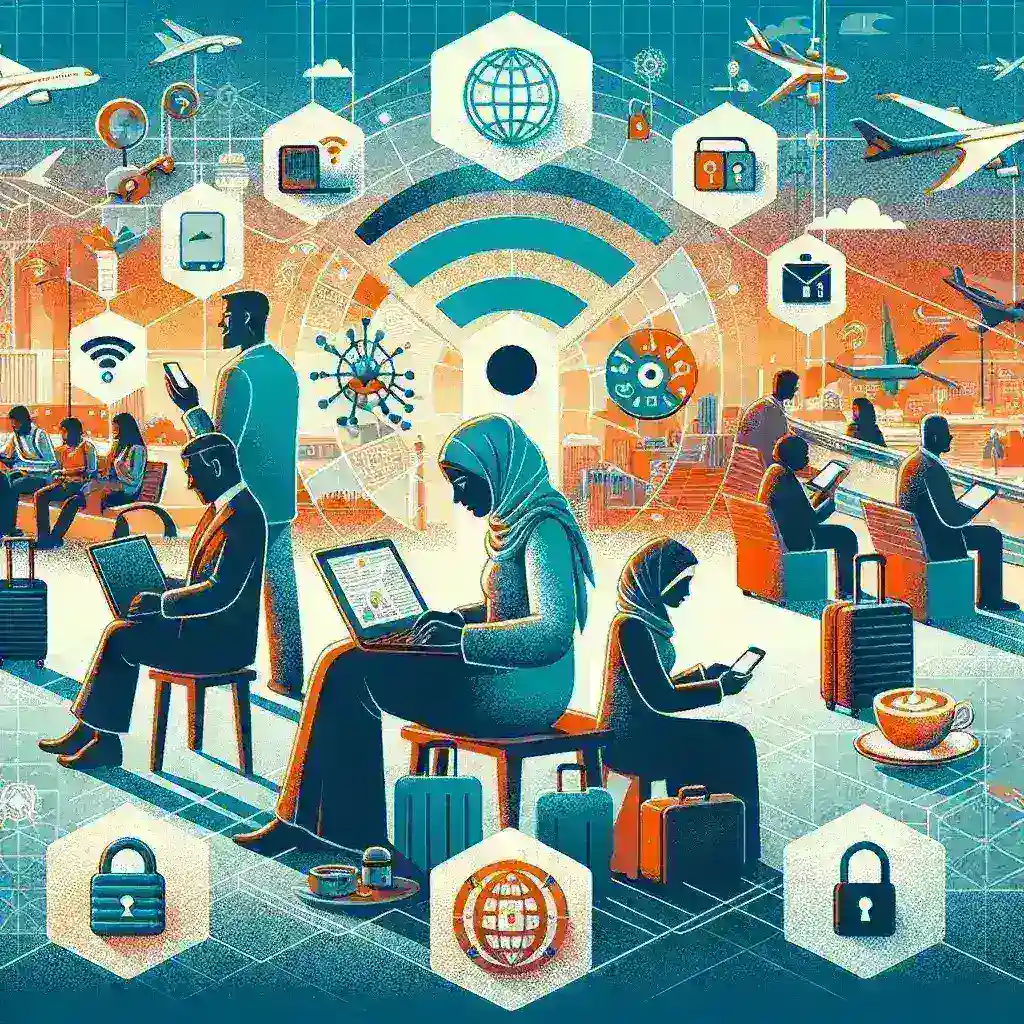Introduction
In today’s fast-paced world, staying connected while traveling is more important than ever. Public Wi-Fi networks are a convenient way to access the internet, but they can also pose significant risks to your data and privacy. This article will explore essential public Wi-Fi security tools that every traveler should consider using to protect themselves while on the go.
The Risks of Public Wi-Fi
Public Wi-Fi networks are often unencrypted, making them vulnerable to various cyber threats. Here are some common risks associated with public Wi-Fi:
- Data Interception: Hackers can easily intercept data transmitted over unsecured networks.
- Man-in-the-Middle Attacks: Attackers can position themselves between you and the network, allowing them to capture sensitive information.
- Malware Distribution: Public networks may be used to distribute malware to connected devices.
- Identity Theft: Personal information can be stolen if proper security measures are not taken.
Essential Security Tools for Public Wi-Fi
To mitigate these risks, travelers can use a variety of security tools designed to enhance their online safety. Here are some of the most essential tools:
1. Virtual Private Network (VPN)
A VPN encrypts your internet connection, making it much more difficult for hackers to intercept your data. When using a VPN, your online activities are hidden from prying eyes. Some popular features of VPNs include:
- Data encryption: Protects your information from being accessed by third parties.
- Anonymity: Masks your IP address, making it harder for websites to track your location.
Choosing the Right VPN
When selecting a VPN, consider the following factors:
- Strong encryption protocols
- No-logs policy
- High-speed performance
- Multiple server locations
2. Antivirus Software
Investing in reliable antivirus software is crucial for protecting your device from malware and other security threats. A good antivirus program can offer:
- Real-time protection: Identifies and blocks threats as they occur.
- Regular updates: Ensures your software is equipped to handle the latest threats.
- System scanning: Regular scans help identify potential vulnerabilities.
3. Firewall Protection
A firewall acts as a barrier between your device and external threats. Enabling your device’s firewall can help block unauthorized access and keep your data safe. Remember:
- Ensure your firewall is enabled when connecting to public Wi-Fi.
- Consider using advanced firewalls that offer additional features.
4. Password Managers
Using strong, unique passwords for each of your accounts is essential. A password manager can help you manage and generate secure passwords, making it easier to maintain your online security. Benefits of using a password manager include:
- Secure storage: Safely stores your passwords and sensitive information.
- Auto-fill feature: Automatically fills in login details for websites.
- Strong password generation: Creates complex passwords that are hard to crack.
5. Two-Factor Authentication (2FA)
Enabling 2FA on your accounts adds an extra layer of security. Even if your password is compromised, the attacker would still need the second factor to gain access. Common 2FA methods include:
- SMS codes: A one-time code sent to your phone.
- Authentication apps: Apps that generate time-sensitive codes.
Best Practices for Using Public Wi-Fi
In addition to using security tools, following best practices can help enhance your overall security while using public Wi-Fi:
- Connect to secure networks: Always choose networks that require a password.
- Avoid sensitive transactions: Refrain from accessing banking or sensitive information on public networks.
- Log out of accounts: Always log out of your accounts when finished using them.
- Disable sharing: Turn off file and printer sharing in your device settings.
Future of Public Wi-Fi Security
As technology continues to evolve, so do the threats associated with public Wi-Fi. However, advancements in security tools are also on the rise. Future predictions for public Wi-Fi security include:
- Increased use of AI and machine learning for threat detection.
- Stronger encryption protocols becoming standard practice.
- Greater public awareness of cybersecurity risks.
Conclusion
Traveling doesn’t have to mean compromising your online security. By utilizing essential public Wi-Fi security tools and following best practices, you can significantly reduce your risk of falling victim to cyber threats. Remember, staying safe online is your responsibility—arm yourself with the knowledge and tools to protect your information while traveling.

